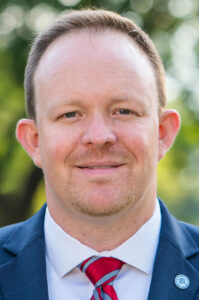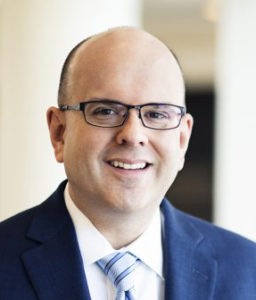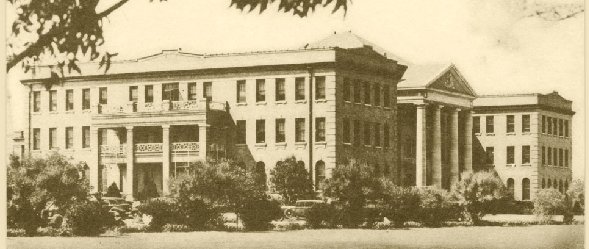Note: The following opinion piece includes detailed descriptions of sexual assault.
These past two weeks have been, to borrow a phrase from Russell Moore, an “apocalypse” for the Southern Baptist Convention.
On May 22, an independent Sexual Abuse Task Force appointed by messengers to last year’s annual meeting released the findings of an investigative report by Guidepost Solutions in the mishandling of sexual abuse by the SBC’s Executive Committee. Download it now if you haven’t already.
Nearly 300 pages long, the Guidepost report revealed that key leaders mistreated abuse survivors and stonewalled meaningful abuse reform initiatives. It also revealed allegations of violent sexual misconduct against former SBC president and North American Mission Board Vice President Johnny Hunt. When Hunt was contacted by Guidepost’s investigators, he stated he had “no contact whatsoever” with the wife of an SBC pastor. However, just five days after the report was released, Hunt changed his story and admitted to sexual misconduct, although he denied the abuse allegations.
An overlooked section
But nestled in the middle of the report was an overlooked pericope that brought me great distress when I realized this section of the report pertained to my alma mater, Texas Baptist College at Southwestern Baptist Theological Seminary.
Some who have been following me on social media may have noticed I have taken a rather adversarial stance against my alma mater even though the ink of my degree is still drying. Here, I want to explain why and give some larger context to the breadth of the sexual abuse problem.
On page 111 of the Guidepost report, investigators noted that in 2019, longtime advocate, whistleblower and survivor Christa Brown questioned the newly created SBC Credentials Committee for not providing a safe way for survivors to disclose clergy abuse, including the disallowing of sending reports of abuse from anonymous sources. This relates to overall reluctance of SBC officials to acknowledge the reality of sexual abuse in SBC churches and institutions.
In an email to his staff, then Executive Committee President Ronnie Floyd forwarded a story from ChurchLeaders.com wherein Brown criticized the Credentials Committee. Floyd provided only one word of commentary: “Again …”
Guidepost reported that this was likely a reference to other criticism Floyd had received for his floundering and inadequate response to abuse in the SBC ranks, including and especially criticism he received for Baptist Press misreporting the abuse of Jennifer Lyell as a consensual relationship.
Abuse survivors “are never going to be happy. Some people just want to watch the world burn.”
In an email to Floyd, Edward Upton, who was then assistant to the president at the Executive Committee, remarked upon receipt of the story: Abuse survivors “are never going to be happy. Some people just want to watch the world burn.”

Edward Upton
How, you may ask, does this seemingly minute detail affect Southwestern Seminary? Simple. Edward Upton since May 2021 serves as vice president for institutional advancement at Southwestern Seminary.
I first made this connection and brought it to the attention of Twitter followers mere hours after the Guidepost report was made public on May 22. One week later, I noted that Southwestern administrators had failed to make any meaningful comment on anything about the report and specifically failed to refute Upton’s remarks. Even though those remarks were made while Upton was employed by the Executive Committee, they still reflect poorly on his current employer because of the cavalier attitude represented.
While the Executive Committee badly mishandled abuse, to their credit, they eventually refuted their own former legal counsel’s similar sentiment that discourse between Executive Committee staff and survivors would not be “positive or fruitful.”
In a reply to my May 29 tweet, Brown shared an opinion piece she penned for BNG on Dec. 18, 2019, that detailed her critique of the Credentials Committee — a critique which she noted “earned me those remarks of Floyd & Upton.”
Despite my very public calls for Southwestern to apologize to Brown and to the broader survivor community for Upton’s “some people just want to watch the world burn,” President Adam Greenway, Vice President for Institutional Administration Colby Adams, and Upton himself have been silent — not just about Upton’s comment but about the entire report.

Adam Greenway
Finally, on June 1, Greenway and Danny Roberts, chair of Southwestern’s board of trustees, released a statement that included the names of Southwestern alumni who were on the Executive Committee’s recently publicized list of clergy sexual abusers. But that list initially failed to include Brown’s own abuser, Tommy Gilmore, even though he was a student there between 1967 and 1971 — at the same time he was abusing Brown — and graduated with a master of religious education degree with an emphasis on children’s ministry. His name since has been added to the online statement.
Also conspicuously absent from that statement? Any acknowledgement of Upton’s remarks.
One could argue that a current employer should not be liable for scandalous comments made by an employee in a different context, but that is implausible in the interconnected web of SBC entities.
‘If you knew what I knew, you would feel the way I feel’
The reality is that every SBC agency and institution has its own history of failing to respond well to claims of sexual abuse. We just don’t know all those stories yet because the Guidepost investigation focused on the Executive Committee.
“The reality is that every SBC agency and institution has its own history of failing to respond well to claims of sexual abuse. We just don’t know all those stories yet.”
On Wednesday, June 23, 2021, just days after the SBC annual meeting in Nashville, I sat down with Adam Greenway and his then chief of staff, Colby Adams, for a meeting about Southwestern’s response to sexual assault and abuse. Just four days earlier I sent an email to both men outlining my concern about public and private reports I heard from faculty and peers. I went to these two leaders as an advocate and ally of abuse survivors.
Days earlier, a peer shared a lengthy Facebook post chronicling their own perceptions of mistreatment by Southwestern administrators. This was deeply distressing to me, as it was not the first time I had heard such a report. And it was deeply distressing because Greenway’s predecessor as president, Paige Patterson, had been fired by trustees for mishandling claims of sexual abuse.
As our meeting began, Greenway looked me in the eye and said, “You called this meeting, so why don’t you explain why we’re all here?”
As kindly and cordially as I could, I explained my concern about the seminary’s response to abuse and inquired about the existing policies and procedures the seminary had in place for survivors and their disclosures.
The president and his aide assured me that any disclosure warranted an immediate call to Southwestern’s campus police. As our meeting went on, Greenway made a point to tell me there were things I could not comprehend going on at the institution.
“If I knew what you knew,” he told me, “I would feel the way you feel. But if you knew what I knew, you would feel the way I feel.”
“If I knew what you knew, I would feel the way you feel. But if you knew what I knew, you would feel the way I feel.”
Before our meeting ended, Greenway proceeded to give me a word of “pastoral encouragement.” He reminded me there were things in my file of which I would not be particularly proud, although he also assured me he knew I was now a “different person.”
Greenway also “encouraged” me to remember I represented him every time I tweeted or wrote an article.
Minutes after walking out of that meeting, I picked up my phone and called the president of a nearby college to discuss transferring, even though I was only 30 credit hours away from graduating. I ended up staying at Southwestern for the sole purpose of avoiding the hassle of moving and transferring, although I lived the next year in psychological terror.
‘Please don’t tell anyone else about this … I want to be in children’s ministry’
Here’s an example of the kinds of stories that came to me. In hearing this story, it’s important to note the culture shift that has transpired on several SBC seminary campuses over the last two decades as seminaries that once trained mainly master’s and doctoral students have added undergraduate colleges, bringing 18- to 22-year-old students onto campuses that once were the exclusive domain of graduate students and sometimes placing them together in dormitories.
“John Doe” is a friend of mine who was an undergraduate worship student at Southwestern. He was one of the few minority students on campus and lived just one floor below me in Fort Worth Hall, the historic men’s dormitory.
One night in September 2019, Doe gathered with five other friends for a movie night.
In the corner of the room, an extra couch served as a kind of “overflow” seating for this extraordinarily large room. Doe sat with a graduate theology student named “Mike.” They were about 20 feet behind four other friends who had squashed together on another couch directly in front of the TV. The room was dark and lit only by the movie.
Doe noticed something was off with Mike that night. Although he was introverted, Mike seemed quieter than usual.
Up until that point, Mike and Doe had a rather complicated relationship. Mike was a more experienced employee for Southwestern’s landscaping crew. Doe worked with him and under his supervision. A few months earlier, Doe had heard from coworkers that Mike had been saying and doing some “strange” things, although those things were never outrightly specified.
Doe sometimes noticed that Mike would go out of his way to make sure they both were near to each other, although he didn’t think too much of it at the time. That was until, one day, Mike and Doe were sitting in a landscaping truck near a pasture that needed mowing.
A love song was playing on the radio in the sweltering 102-degree Texas heat. Mike longingly looked at Doe and then, suddenly, took his hand and began to rub Doe’s chest. “This one’s for you,” he said.
Doe immediately got out of the truck to get away and found something else to do.
Doe didn’t mention that incident to anybody, although he was sometimes concerned when he was alone with Mike at work. But he also did not think Mike was predatory, only perhaps a little too risqué.
“What was said between the two young men is still unclear, but one thing remains undisputed: toward the end of the movie, Mike sexually assaulted Doe.”
But back in Fort Worth Hall that night, they sat on the back couch together, out of sight of anyone else. What was said between the two young men is still unclear, but one thing remains undisputed: toward the end of the movie, Mike sexually assaulted Doe.
And here is a point most evangelicals and Southern Baptists fail to comprehend: Sexual assault can happen between two men, not just between a male aggressor and a female victim. Any unwanted sexual touching may be considered a form of assault.
Mike groped Doe’s penis through his clothes and began to masturbate him. Doe froze in fright and was unsure what to do. That moment felt like an eternity until Mike got up and abruptly left.
What to do?
The next morning, Doe worked up the courage to tell his roommates and another friend what had happened to him the night before. They were shocked. They held him and wept with him.
Doe was unsure of what to do, as were his friends. Despite the nature of the former president’s firing, it seemed to these undergraduate students that no clear policies and procedures had been explicitly established for the students.
One option was to call the campus police, but rumors of their mistreatment of racial minorities made Doe skeptical and frightful. All the students seemed to be aware, however, that one man on campus was responsible for handling matters like this: the dean of students, Charles Carpenter, affectionately known as “Chuck” by some on campus.
Doe worked up the courage to go to him that morning and disclose his sexual assault. Carpenter thanked him and swiftly called in Mike to inquire about the incident in a private meeting later that day.
Mike admitted he had touched Doe, but said it was only in playful fun. He denied groping and masturbating Doe through his clothes and said it was only a “cup check” — a common game among boys wherein the offender slaps the victim’s testicles in the name of ensuring adequate “protection.”
Carpenter did not buy that story. Mike was told he was being expelled and would need to leave Southwestern’s campus. All this was a good and proper response. Carpenter is to be commended for his swift action.
“Doe was left hanging. He never was put in contact with campus police. He never was asked if he wanted to press charges.”
However, Doe was left hanging. He never was put in contact with campus police. He never was asked if he wanted to press charges. Other administrators were not notified of Mike’s abusive behavior and Doe’s need for resources. He never was referred to the seminary’s on-campus counseling center.
But most tragically, the day Mike was told to leave campus, he was allowed unsupervised access to the dormitory where Doe lived.
Doe was fast asleep in the afternoon — having stayed up all night thinking of who to tell and what to do. He was awakened with a jolt as Mike shook him in his bed.
When Doe saw his face, he was paralyzed and feared he would be violated again. But this time he feared he would not live through it because his abuser knew of his disclosure. It also was no secret that Mike owned firearms.
“Hey man,” Mike said. “I’m really sorry about last night. I didn’t mean anything by it.”
Mike then paused for an uncomfortable amount of time before finally pleading with Doe, “Please don’t tell anyone else about this. … I want to be in children’s ministry.”
Mike then walked out of Doe’s room and, thankfully, out of his life for good.
Depression sets in
In the months that followed, Doe fell into a deep depression. He stopped attending class and was failing in everything he was taking. He contemplated suicide and often used humor to deflect from his self-harming ideation and behavior.
While professors were concerned for Doe, no one reached out to offer him help or support. His only relief came when he worked up the strength two months later to send an email to Michael Wilkinson, who at the time was dean of the college.
A meeting could not be arranged for more than a week, and it quickly became apparent to Doe that the dean of the college had no knowledge of Doe’s recent assault. In their email exchange, the dean explained: “I have not heard about an incident that involved you. I’m certainly glad to talk with you about it and help in any way that I can. I am truly sorry that you have been negatively affected by this.”
In the meeting, Wilkinson was floored by what Doe told him. Meanwhile, Doe was angered that he had to tell his story again. And this would not be the last time he would have to explain his situation to a campus administrator.
“Doe was angered that he had to tell his story again. And this would not be the last time he would have to explain his situation to a campus administrator.”
Wilkinson, to his credit, arranged a meeting with the registrar’s office to allow Doe to withdraw from his classes even though it was past the deadline. But no one in the registrar’s office or provost’s office knew about Doe’s story, so he was forced to relive the trauma by telling it to each of them again.
Soon the fall semester ended. No one knew at the time that COVID was just months away from changing the world. Doe turned to alcohol to cope. His buddies kept a secret stash in a mini fridge in a vacant room and often would drink away their weekends since lockdowns prevented them (and everyone else) from going out and staying busy. Much of that spring 2020 semester was a drunken blur.
Doe eventually left Southwestern and went to study worship ministry at Dallas Baptist University. He was forced to drop out when depression once again overtook him. He eventually found work at an airport shuttle company.
Doe still resides in North Texas and lives with his mother. He plans to attend a state school nearby and earn a degree in counseling so he can offer to others what he was denied.
Meanwhile, somewhere outside Houston, Mike works with a recreation ministry. His responsibilities include training members at a local gym.
He also works with children.
David Bumgardner is a writer and minister in New Orleans. He is a pastoral intern at Canal Street Church, a parish in the Anglican Mission International. David formerly wrote as a Clemons Fellow for Baptist News Global. He is a graduate of Texas Baptist College, where he earned a bachelor of arts degree in Christian studies. He is a student at Talbot School of Theology, pursuing a master of arts degree in theology.
Related articles:
What Southern Baptists must do now to address clergy sex abuse | Opinion by Christa Brown

